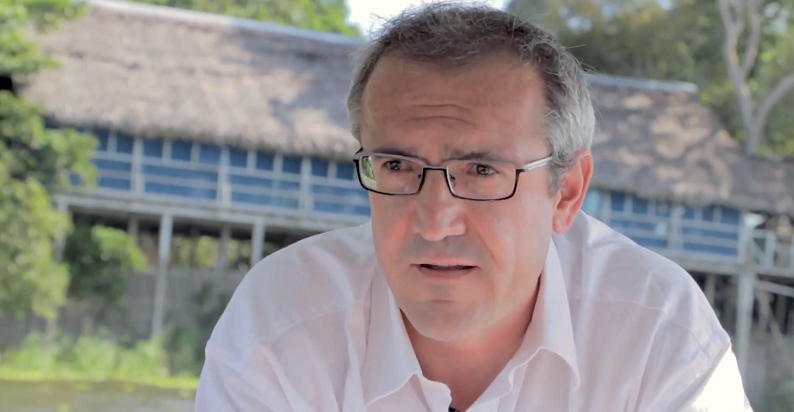-
12 February 2015
Category : Interview
Five answers on Peru’s judicial system
Mikel Berraondo is an international expert on human rights and indigenous peoples who in the last two years has been coordinating the interculturality project of justice in Peru within the EUROsociAL programme. We talk to him about progress in linking ordinary justice with the special jurisdiction system of Peru's indigenous populations, which has consolidated a relationship of equality with recognition of intercultural justice.

What is meant by intercultural justice?
Putting into practice international human rights standards that refer to creating a justice system in which ordinary justice coexists with the different levels of indigenous justice present in each country, known in all regions as “legal pluralism”. Basically it’s a question of finding the formula for the justice systems to coexist and develop in a parallel and complementary manner.
What does “intercultural justice” mean in the Peruvian context?
In Peru it means an important step forward in terms of strengthening the role of the judiciary as an institution that guarantees rights in terms of strengthening compliance with international standards Peru has adopted through ratification—such as IOM Convention 169; and in practice its means a path to conflict resolution and establishment of understanding where up to now there has been a very complicated coexistence.
The access to justice line of action, in its intercultural justice component in Peru, who it is aimed at?
The interesting thing about the project is that it worked with the Judiciary, with the National Office of Justice and Peace (ONAJUP), and the ultimate beneficiaries of this entire process are not just this institution but also extend to all the civil servants of the justice system, and to the indigenous peoples and “rondas campesinas” who have their own systems of justice. What we have done is to establish a series of action and coordination protocols so that pathways are established which allow the authorities of the different justice systems to have a relationship of equality, of recognition of rights, of authority, that lets them coexist and create this system of intercultural justice within the countries, breaking down the previous dynamics in which special justice authorities were even criminalized—in the case of the “rondera” authorities—for exercising their judicial authority.
Have you noted any feedback yet in any population—”ronderos”, indigenous leaders, for example—regarding the interest or relevance of the project?
We put the finishing touch on this project with a series of training courses we held in three cities in the country: Cuzco, Iquitos and Pucallpa, held in parallel with personnel from the Peruvian justice system and authorities from the special justice systems. What indigenous and “rondero” leaders who exercise forms of special justice have transmitted to us is that this dialogue represents a very interesting tool for continuing to progress in this process of building an intercultural justice system.
What change will it bring about in the populations? Will it help reduce conflicts?
The protocols aren’t going to solve all the problems indigenous communities in Peru have. The latest report of the Committee Against Racial Discrimination was very unforgiving in terms of discrimination because of the levels of racism that exist in the country. But with these protocols and all the things being worked on around them, and the work that the ONAJUP has been contributing, first, to recognizing the indigenous justice systems, which is an extremely important step forward in a country with these levels of racism, in the short term we are already seeing a significant reduction in the criminalization of these special justice systems. The ordinary justice system, therefore, is starting to recognize that there is another form of justice, one that has equal legitimacy in its social environments, which must be respected, and that relationships of coexistence and coordination must be established with these authorities.
*Regarding this entire experience, the Spanish Law Foundationand Justice International Cooperation, operational partners in the Justice area coordinated by Expertise France, prepared a document entitled “Intercultural Justice in Peru: 21 years later” which describes the entire process explained by Mikel Berraondo in this interview through its leading actors.
The author has sole responsibility for the opinions and comments expressed in this blog
The views and opinions expressed in this blog are the sole responsibility of the person who write them.




